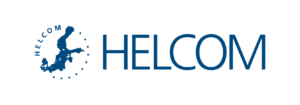Nutrient flow and recycling in focus at the HELCOM Agri Group meeting this weekSmart nutrients management in agriculture is in focus at the HELCOM meeting, which is currently being held in Helsinki, Finland, on 9–10 November 2017. Recent results of HELCOM assessments show that an oversupply of nutrients to the Baltic Sea from various land-based sources remains the major environmental pressure on the marine ecosystem. The largest share of nitrogen and phosphorus comes from diffuse sources, and of these, agricultural production is the most significant. Participating in the meeting are representatives of the Baltic Sea countries and the EU, among them experts from environmental and agricultural authorities and research institutions, as well as from farmers associations and environmental NGOs. Discussions will focus on drivers and obstacles for nutrient recycling in the region, including nutrient flows and means to return nutrients to the agricultural production, aimed at preventing them from leaching into the aquatic environment. Among the specific themes of the Meeting are further steps on nutrient accounting at farm level in the region, as well as innovative water management in rural areas. . All documents will be public after the meeting.* * *Note for editorsHELCOM is an intergovernmental organization made up of the nine Baltic Sea coastal countries and the European Union. Founded in 1974, its primary aims as a governing body are to protect the marine environment of the Baltic Sea from all sources of pollution, as well as to ensure safe maritime navigation. The official name of HELCOM is the Baltic Marine Environment Protection Commission; it is the governing body of the Helsinki Convention.The deals with agriculture related to the implementation of an ecosystem-based approach. It includes representatives from agriculture and environmental authorities of the Baltic Sea countries, as well as EU and HELCOM Observers. The group provides a platform for agri-environmental policy measures and instruments, as well as for the joint discussion of agricultural effects on the marine environment, namely nutrient inputs and emissions. Its official name is the HELCOM Group on Sustainable Agricultural Practices.* * *For more information, please contact:Dmitry Frank-Kamenetsky Professional Secretary HELCOM Tel: +358 40 630 9933 Skype: helcom68 E-mail: dmitry.frank-kamenetsky(at)helcom.fi
Nutrient flow and recycling in focus at the HELCOM Agri Group meeting this week

